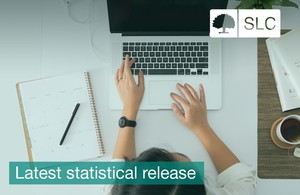The UK’s major telecoms companies have agreed their customers’ mobile phone data won’t be used up if they’re seeking information and support online.
Zero-rating these websites is the latest in a series of commitments from the telecoms industry to support vulnerable people during the pandemic. It comes at a time when some charities are reporting significant increases in visits to their websites.
Instructions to stay at home as much as possible may have been a major cause of anxiety for some victims while social distancing measures mean it is harder for organisations to offer face-to-face support.
To ensure this vital support remains available mobile network operators EE, Vodafone, O2, Three, Sky Mobile, Virgin Media, Tesco Mobile and giffgaff have agreed that their customers will not incur data charges when accessing support and information on the following websites:
Providing support for victims and witnesses of crime
Victim Support – www.victimsupport.org.uk
Providing support for victims of sexual violence and abuse
Rape Crisis – www.rapecrisis.org.uk
The Survivors Trust – www.thesurvivorstrust.org
Male Survivors Partnership – www.malesurvivor.co.uk
Providing support for victims of domestic abuse
Refuge – www.refuge.org.uk
National Domestic Abuse Helpline – nationaldahelpline.org.uk
Women’s Aid and Welsh Women’s Aid – www.womensaid.org.uk and www.welshwomensaid.org.uk
Providing support for children suffering abuse
NSPCC – www.nspcc.org.uk
Digital Infrastructure Minister Matt Warman said:
This agreement will help people who are at risk of violence during this pandemic get the information and support they need, particularly those on pay as you go contracts or tight data allowances.
This is yet another positive commitment from the UK’s brilliant mobile network providers to support the vulnerable and contribute to the national effort to overcome coronavirus.
Justice Minister Alex Chalk said:
Victims need to know that support remains available despite this pandemic.
Ensuring free access to these important websites and more funding for vital helplines is just one part of the work we are doing to make sure no victim is left to suffer alone.
The move follows previous commitments from the UK’s internet service and mobile providers to support and protect vulnerable consumers and the NHS during the pandemic.
As part of this all of the UK’s internet providers have already agreed to remove all data allowance caps on current fixed broadband services, so accessing these websites through a home broadband connection will not incur data charges.
Further Quotes
The Victims’ Commissioner for England and Wales Dame Vera Baird QC said:
This is something that I have called for and I am pleased that the Ministry of Justice and the mobile network operators have responded and worked together to make it happen.
No one should be denied access to these important sites because of data restrictions. This move will allow even more victims – especially those who may be struggling to use traditional contact methods during the lockdown – to access the help and support they need, and I hope that it becomes a permanent arrangement.
Nick Jeffery, CEO of Vodafone UK said:
We believe in the power of technology to make a positive difference in the world, and have worked to support domestic abuse organisations for many years. The Bright Sky app – developed by the Vodafone Foundation and Hestia and which provides support and information to anyone affected by domestic abuse – has seen a 47% increase in downloads during lockdown. This is a huge concern and we wholeheartedly support this initiative.
Robert Finnegan, CEO of Three UK said:
We believe that the most vulnerable people in society should be able to access the help and support that they need at this difficult time. Zero-rating access to these websites is a great initiative that Three are pleased to support.
Tom Denyard, CEO of Tesco Mobile said:
At Tesco Mobile, we understand that the ability to connect can be a lifeline for many so we want to ensure that our customers have access to information and support during this difficult time, without the need to use their data allowance. We hope that by giving free access we are helping, even in a small way, to provide some level of comfort to victims of crime.
Lutz Schüler, CEO of Virgin Media said:
The role of connectivity in our lives has never been more apparent than it is right now. We know that, in these difficult times, being able to connect to the outside world and access help and support is vital. We’re committed to providing easy, unrestricted access to these important websites for our customers at a time when they may need it most.
Nicola Green, Director of Corporate Affairs at O2, said:
We are pleased once again to be working with the Government during the COVID-19 pandemic to support vulnerable people. The ability of domestic violence victims to access support services through digital connectivity can help protect and remove them from dangerous situations. O2 is delighted to back this initiative.
Debbie Klein, Group Chief Marketing, Corporate Affairs and People Officer for Sky said:
Like many, we are deeply concerned to see the shocking increase in the number of people reporting incidents of domestic violence during lockdown. Sky is committed to supporting our customers and those affected by ensuring they are able to seek information and support online without using their data”.
Christian Thrane, MD Marketing, BT / EE said:
We’re pleased to be able to support this important initiative to help domestic violence victims during the pandemic.
Ash Schofield, CEO at giffgaff said:
Since the coronavirus pandemic began there’s sadly been an influx of outreach to websites offering support to vulnerable victims of crime. During such difficult times, we at giffgaff have joined forces with other telcos to provide vulnerable victims of crime free access to the websites offering vital support needed.
ENDS
Notes to editors:
- This is in addition to NHS websites and other support websites already zero rated by some mobile network operators, and includes Imkaan, a website dedicated to addressing violence against Black and Minority Ethnic women and girls.
- The majority of these websites have now been zero rated, but this is on an operator by operator basis. All of the mobile network operators have committed for the zero rating to take effect as soon as possible.
- Mobile network operators have agreed that these measures will be in effect until at least 31 October 2020.
- Those who have run out of data will still be able to access these websites by typing the exact web address into their mobile internet browser.
- Zero-rating usually applies on a domain basis only. Third party content on these websites may not be covered by the zero rating.

